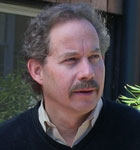With four billion US dollars pledged last week to kick-start the Reduced Emissions from Deforestation and Forest Degradation (REDD), a new report by Global Witness warns that the funds could do little to stem deforestation if governance and accountability are not improved and corruption tackled. The REDD program provides funds to tropical nations to keep forests standing as a means to sequester carbon.
“Protecting forests will be absolutely crucial to mitigating climate change, but past experience tells us that without transparent and effective governance and effective independent monitoring, money will fail to solve the problem,” explains Laura Furones of Global Witness in a press release. “REDD carries considerable risks for forests and local communities and will only succeed if civil society is engaged as an independent watchdog.”
To deal with problems of governance and corruption, Global Witness recommends creating a systems for independent monitoring in its new briefing Principles for Independent Monitoring of REDD (IM-REDD). The briefing lays out 10 key principles for REDD to succeed, including program independence from national officials and private companies, an official mandate from participating nations for those monitoring progress, unhindered access to forest sites, open access to information, and a right to publish any findings. The report warns that unless these basic steps are implemented into the REDD agreement, corruption and abuse will wreck the program.
“It is now widely accepted that for forest reform to be effective, it must be independently monitored,” said Ms. Furones. “This report takes the lessons from over 10 years’ work in the field on forest governance. It outlines what needs to happen when promises leave the conference halls and hit the ground. Effective monitoring will be critical for the scheme’s credibility.”
Deforestation in the tropics contributes between 12-17 percent of the world’s greenhouse gas emissions. Stopping deforestation is considered by many policy makers to be the quickest and cheapest way to mitigate global climate change. A well-implemented REDD program could also protect biodiversity, sustain forests for indigenous groups, and preserve numerous ecosystem services from pollination to clean water to erosion. However, the negotiations are complex and some environmentalists fear that REDD will be usurped by industrial and government interests at the expense of forest preservation or that the program undercut the rights of indigenous people.
Related articles

Can markets protect nature?
(05/03/2010) Over the past 30 years billions of dollars has been committed to global conservation efforts, yet forests continue to fall, largely a consequence of economic drivers, including surging global demand for food and fuel. With consumption expected to far outstrip population growth due to rising affluence in developing countries, there would seem to be little hope of slowing tropical forest loss. But some observers see new reason for optimism—chiefly a new push to make forests more valuable as living entities than chopped down for the production of timber, animal feed, biofuels, and meat. While are innumerable reasons for protecting forests—including aesthetic, cultural, spiritual, and moral—most land use decisions boil down to economics. Therefore creating economic incentives to maintaining forests is key to saving them. Leading the effort to develop markets ecosystem services is Forest Trends, a Washington D.C.-based NGO that also organizes the Katoomba group, a forum that brings together a wide variety of forest stakeholders, including the private sector, local communities, indigenous people, policymakers, international development institutions, funders, conservationists, and activists.
Where do forest carbon markets go from here?
(04/20/2010) For thousands of years, we have been planting and growing trees without difficulty. It’s simple, and forest carbon business strategy can be, too. In fact, it’s core to what I’m trying to teach the MBA/MS students in my course at the Erb Institute this semester: If the world’s best available technology for removing carbon dioxide from the atmosphere is employing the natural photosynthetic capacity of natural forest management, we can too.
$6B forest conservation plan lacking in transparency, indigenous participation, say activists
(04/13/2010) The process to establish REDD+, a proposed climate change mitigation mechanism that would reduce greenhouse gas emissions by funding conservation and sustainable management of tropical forests (REDD+), is lacking in transparency and failing to include civil society organizations and indigenous peoples, say activists across forty NGOs.














